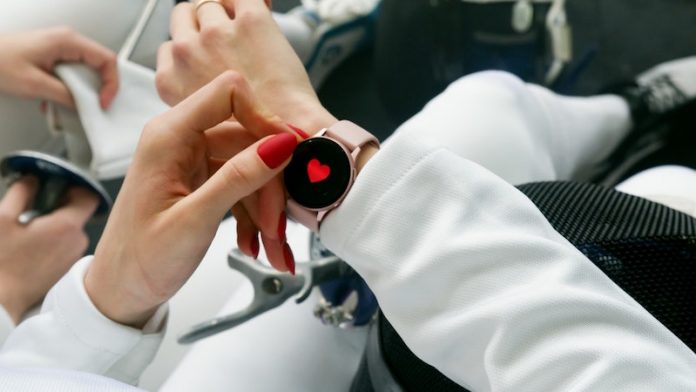
Scientists from the Chinese PLA Medical School found atrial fibrillation (AFib) was confirmed in nearly 94% of people who were initially identified to have signs of the heart rhythm disorder by a smartwatch application and who followed up with a clinician.
The research was presented at the American College of Cardiology’s 71st Annual Scientific Session and was conducted by Yutao Guo et al.
AFib is an irregular, often rapid heart rate that commonly causes poor blood flow. The heart’s upper chambers (atria) beat out of coordination with the lower chambers (ventricles).
This condition may have no symptoms, but when symptoms do appear they include palpitations, shortness of breath, and fatigue.
Treatments include drugs, electrical shock (cardioversion), and minimally invasive surgery (ablation).
The current study involved more than 2.8 million participants and is the largest study to date to demonstrate how wearable consumer technologies can be used to screen for heart problems during everyday activities.
The study combined data from smart devices with clinical data to examine the accuracy of AFib screening using photoplethysmography, a light-based method to monitor blood flow used in many wearable devices.
Researchers tracked more than 2.8 million people who downloaded an AFib screening app on a compatible Huawei smart device (a consumer electronics brand popular in China).
The smart device uses photoplethysmography to monitor the wearer’s pulse and the app applies an algorithm to detect when the heart rhythm is abnormal.
If an abnormal rhythm was detected, the wearer would be contacted by a clinician to set up an appointment for a clinical assessment.
The team also used the app to screen a subset of participants for obstructive sleep apnea and found that people flagged for possible sleep apnea were 1.5 times more likely to have AFib than those who were not.
This suggests that tools suitable for detecting the two conditions can work synergistically to further enhance health monitoring.
The team says digital technologies make it possible to increase general awareness about AFib and its risk factors as well as to improve the prevention of AFib and its complications.
With the global surge of wearable technology for AFib screening, especially in the challenging setting of the COVID-19 pandemic, the study provides a possible solution to help people identify possible signs of AFib and get diagnosed and treated earlier.
Sign up for our newsletter for more information about this topic.
If you care about heart health, please read studies about better treatment of irregular heartbeat and how much should you worry about that ‘extra’ heartbeat?
For more information about heart disease, please see recent studies that this hormone may reduce inflammation, and irregular heartbeat, and results showing a simple way to reduce irregular heartbeat problems.
Copyright © 2022 Knowridge Science Report. All rights reserved.



